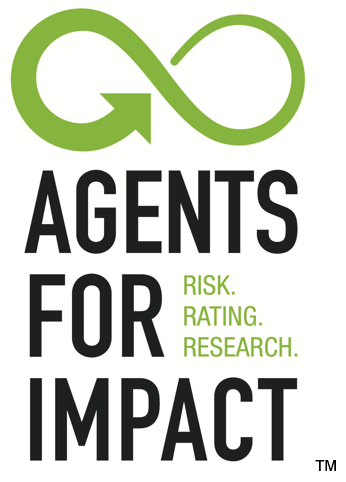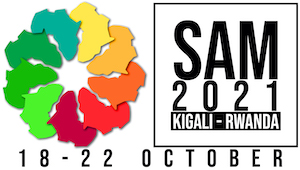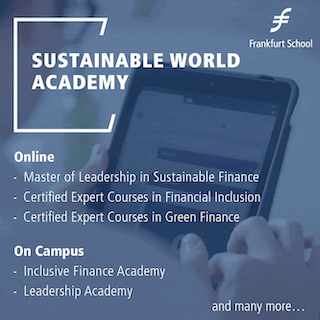 This paper builds on the publishers’ past work to create an updated “methodology for outcomes management and a set of standard outcomes indicators” that are mapped to the UN’s Sustainable Development Goals (SDGs) and the targets that make up each SDG. The aim is for the indicators to be “actionable” and the methodology to be “simple” to
This paper builds on the publishers’ past work to create an updated “methodology for outcomes management and a set of standard outcomes indicators” that are mapped to the UN’s Sustainable Development Goals (SDGs) and the targets that make up each SDG. The aim is for the indicators to be “actionable” and the methodology to be “simple” to
Search Results for: measure
MICROFINANCE PAPER WRAP-UP: “Measuring Fees and Transparency in Nigeria’s Digital Financial Services,” by William Blackmon and Brian Mwesigwa, Published by Innovations for Poverty Action
 Digital financial services have evolved greatly in Nigeria over the last decade, but many people in the country still struggle to access formal financial services. This study explores three issues discouraging
Digital financial services have evolved greatly in Nigeria over the last decade, but many people in the country still struggle to access formal financial services. This study explores three issues discouraging
MICROFINANCE EVENT: Impact Investment Summit Asia Pacific; March 29 – April 1, 2022; Sydney, Australia
 Themed “Collective Wisdom, Courage, and Urgent Action,” the goal of this event is to encourage greater use of “capital as a force for good.” Its speakers represent investors seeking to promote
Themed “Collective Wisdom, Courage, and Urgent Action,” the goal of this event is to encourage greater use of “capital as a force for good.” Its speakers represent investors seeking to promote
MICROFINANCE PAPER WRAP-UP: “Better Practice Guidance on Women’s Digital Financial Capability,” Published by Center for Financial Inclusion at Accion
 This paper addresses methods for increasing women’s “ability to access, manage, understand, integrate, evaluate and use financial services offered through digital technologies.” The digitalization of financial services and products is becoming increasingly prevalent, including in parts of the world that are underserved by traditional banks. Investing in building women’s digital financial capability can play a significant role in
This paper addresses methods for increasing women’s “ability to access, manage, understand, integrate, evaluate and use financial services offered through digital technologies.” The digitalization of financial services and products is becoming increasingly prevalent, including in parts of the world that are underserved by traditional banks. Investing in building women’s digital financial capability can play a significant role in
SPECIAL REPORT: Measuring Impact with Agents for Impact’s AFISAR Tool
 Agents for Impact: Driving Positive Impact… Together!
Agents for Impact: Driving Positive Impact… Together!
The 17 Sustainable Development Goals (SDGs) outlined by the UN in 2015 provide a blueprint for a just and sustainable world. While actors across a range of professional arenas are rushing to catch up with the SDGs, the term “impact” is being thrown around loosely to give the impression that the desired goals have been reached. It is tempting to assume certain businesses have a positive impact on the SDGs, simply based on intuition. However, some might negatively impact the SDGs or elicit both positive and negative outcomes in the long run. Without proper tools for impact measurement and assessment, we can only get so far!
Agents for Impact (AFI) understands how essential it is to improve the practice of impact measurement through stable and coherent frameworks. To deliver on this promise, we have designed a specialized investment approach to support microfinance institutions (MFIs) that exhibit strong commitment to and proven track records of progress toward the SDGs. To evaluate an MFI’s performance, AFI peels back the surface to deploy a strong assortment of cohesive and rigorous assessment tools, including financial analysis and addressing social performance indicators; sustainability factors; and
MICROFINANCE PAPER WRAP-UP: “Impact Evaluation of Credit Guarantee Schemes in Agriculture,” Published by FAO
 This paper reviews the impacts of multiple agricultural partial credit guarantee schemes (PCGSs), through which governments agree to absorb a portion of lenders’ losses on particular loans or loan portfolios. Governments often use PCGSs to de-risk financial institutions’ lending to small and medium-sized enterprises (SMEs), especially as a countercyclical tool in times of
This paper reviews the impacts of multiple agricultural partial credit guarantee schemes (PCGSs), through which governments agree to absorb a portion of lenders’ losses on particular loans or loan portfolios. Governments often use PCGSs to de-risk financial institutions’ lending to small and medium-sized enterprises (SMEs), especially as a countercyclical tool in times of
SPECIAL REPORT: Agents for Impact: Driving Positive Impact… Together!
 Founded in 2018, we are a Germany-based impact investing company. Agents for Impact (AFI) offers premium impact investment solutions, sustainability consulting and impact measurement services tailor-made for clients in the sustainable finance industry.
Founded in 2018, we are a Germany-based impact investing company. Agents for Impact (AFI) offers premium impact investment solutions, sustainability consulting and impact measurement services tailor-made for clients in the sustainable finance industry.
We provide our partners with a combination of expertise and experience across the following three pillars: RISK – RATING – RESEARCH.
We have Agents spread across Africa, India, Southeast Asia, Central Asia and Europe, each with in-depth technical expertise and located in close geographical proximity to our key partners and target countries to ensure optimal support.
We pride ourselves on being the partner of choice for impact investors and financial services providers (FSPs) seeking innovation and cooperation. Together with these partners, we pursue positive impact, contributing
MICROCAPITAL BRIEF: L-IFT Adds Features to Finbit Financial Diaries App
 The Netherlands-based company Low-income Financial Transformation (L-IFT) recently added several features to its Finbit system for creating financial diaries to track the transactions and various attributes of individuals and small enterprises. Finbit includes both an app for Android phones and a portal for accessing the data collected.
The Netherlands-based company Low-income Financial Transformation (L-IFT) recently added several features to its Finbit system for creating financial diaries to track the transactions and various attributes of individuals and small enterprises. Finbit includes both an app for Android phones and a portal for accessing the data collected.
The app can act as a financial diary, tracking every daily expense and instance of incoming funds, including purchases, savings, loan disbursements and loan payments as well as number of hours worked. Its new features are more oriented toward the owners of small businesses, including
MICROCAPITAL BRIEF: Publish What You Fund Releases DFI Transparency Tool Providing Guidance, Encouragement to Improve Disclosure on Development Efforts
 Publish What You Fund, a UK-based NGO aimed at increasing the transparency of international development efforts, recently launched its DFI Transparency Tool. The tool is meant to provide development finance institutions (DFIs) with guidance on
Publish What You Fund, a UK-based NGO aimed at increasing the transparency of international development efforts, recently launched its DFI Transparency Tool. The tool is meant to provide development finance institutions (DFIs) with guidance on
SPECIAL REPORT: Private, Public Funders on Green Microfinance, Climate Adaptation, Biodiversity
 Today, at the first plenary of European Microfinance Week 2021, climate adaptation was the hot topic – in contrast to climate mitigation, which is more of a preventative measure. The panelists argued that the scale of funding for climate adaptation is much too small and that many of those most in need still lack access to funding. These groups include smallholder farmers, women, youth and members of indigenous groups. Meanwhile, financial services providers (FSPs) are reporting that
Today, at the first plenary of European Microfinance Week 2021, climate adaptation was the hot topic – in contrast to climate mitigation, which is more of a preventative measure. The panelists argued that the scale of funding for climate adaptation is much too small and that many of those most in need still lack access to funding. These groups include smallholder farmers, women, youth and members of indigenous groups. Meanwhile, financial services providers (FSPs) are reporting that
MICROFINANCE PAPER WRAP-UP: “Determinants of Financial Well-Being: Evidence from Latin America,” by Sebastián Cárdenas, Published by CAF
This  paper addresses the measurement and causes of financial well-being in Latin America with the aim of encouraging the deployment of optimal policies and practices by both private institutions and governments. To define the term, Mr Cárdenas cites the US-based Consumer Financial Protection Bureau (CFPB), which considers a high level of financial well-being to mean individuals can “meet their financial obligations successfully, can feel secure about their financial future and are able to make decisions
paper addresses the measurement and causes of financial well-being in Latin America with the aim of encouraging the deployment of optimal policies and practices by both private institutions and governments. To define the term, Mr Cárdenas cites the US-based Consumer Financial Protection Bureau (CFPB), which considers a high level of financial well-being to mean individuals can “meet their financial obligations successfully, can feel secure about their financial future and are able to make decisions
MICROCAPITAL BRIEF: Oikocredit Lends $9m to Sidian Bank for SMEs in Kenya
 Oikocredit, a cooperative investor based in the Netherlands, recently lent KES 990 million (USD 8.9 million) to Kenya’s Sidian Bank for on-lending to small and medium-sized enterprises (SMEs). Sidian is a commercial institution with 42 branches offering corporate services,
Oikocredit, a cooperative investor based in the Netherlands, recently lent KES 990 million (USD 8.9 million) to Kenya’s Sidian Bank for on-lending to small and medium-sized enterprises (SMEs). Sidian is a commercial institution with 42 branches offering corporate services,
SPECIAL REPORT: Building Resilience for Microfinance Clients – the SAM 2021 Conference in Kigali, Rwanda, October 18-22
 MicroCapital: How will the theme resilience be addressed during the SAM 2021?
MicroCapital: How will the theme resilience be addressed during the SAM 2021?
Yombo Odanou: The EU has defined resilience as “the capacity of an individual, household, community, country or region to resist, adapt and recover quickly from crises and shocks.” The dual climate and COVID-19 crises and their effects on the global economy are forcing institutions to find new ways to take advantage of this austere environment.
Christophe Hebting: We believe the discussions at the SAM can build the resilience capacity of all actors in the inclusive finance sector. This includes addressing questions such as: How can resilience be increased through structural change? In the face of climate change? Through technological innovations?
MC: How are you addressing concerns attendees may have regarding the potential transmission of COVID-19 during the event?
YO: Since the beginning of this pandemic, MAIN has initiated actions to enable its members to minimise the risk of infection, allowing them to continue
MICROFINANCE PAPER WRAP-UP: “COVID-19: Accelerating the Use of Digital Agriculture;” by Leslie Arathoon, Rishi Raithatha, Daniele Tricarico; Published by GSMA
This  report offers a review of prior findings on trends and best practices in “digital agriculture” services provided by mobile network operators (MNOs) and dedicated agricultural technology (agritech) companies. Digital agriculture can include a range of online tools for facilitating the usage of various types of information at any point along
report offers a review of prior findings on trends and best practices in “digital agriculture” services provided by mobile network operators (MNOs) and dedicated agricultural technology (agritech) companies. Digital agriculture can include a range of online tools for facilitating the usage of various types of information at any point along
SPECIAL REPORT: Non-performing Loan Management and Investment – a New Executive Education Offering from Frankfurt School
This year, Europe is emerging from the deepest recession in a generation. But this has not been a normal recession. The number of insolvencies has come down over the last year, and non-performing loans (NPLs) are close to a historic low. Numerous government support measures, such as tax rebates, furlough schemes, moratoria and the suspension of insolvency proceedings were highly effective in temporarily bridging enterprises’ liquidity shortfalls.
However, most of these support measures have come to an end, and many firms’ liquidity buffers are depleted. Meanwhile, a range of sectors will need to confront a fundamental reshaping of their business models. The European Systemic Risk Board, tasked with the big financial stability issues in Europe, speaks of a coming tsunami of insolvencies.
a fundamental reshaping of their business models. The European Systemic Risk Board, tasked with the big financial stability issues in Europe, speaks of a coming tsunami of insolvencies.
In developing countries, the COVID-19 crisis will be more protracted, and a full recovery is less certain. Many mid-sized companies entered the crisis with significant leverage levels, and the more numerous microenterprises are poorly
MICROCAPITAL BRIEF: IFC, FMO Loaning $50m to I&M Bank to Support SMEs in Kenya
 The International Finance Corporation (IFC), the private-investment arm of the World Bank Group, along with Nederlandse Financierings-Maatschappij voor Ontwikkelingslanden (FMO), a Dutch public-private partnership, recently announced a loan package of USD 50 million for I&M Bank Limited, which is owned by the Kenya-based I&M Group. The funds are intended to
The International Finance Corporation (IFC), the private-investment arm of the World Bank Group, along with Nederlandse Financierings-Maatschappij voor Ontwikkelingslanden (FMO), a Dutch public-private partnership, recently announced a loan package of USD 50 million for I&M Bank Limited, which is owned by the Kenya-based I&M Group. The funds are intended to
MICROCAPITAL BRIEF: EBRD, EU Lending $30m for MSMEs via ProCredit Bank Ukraine, Primarily for Green Technology
ProCredit Bank Ukraine recently agreed to borrow the approximate equivalent of USD 30 million from the UK-based European Bank for Reconstruction and Development (EBRD) and the EU. The funds, which are denominated in a mix of euros and Ukrainian hryvnia, are to be used for on-lending to micro-, small and medium-sized enterprises (MSMEs). The wholesale loan is part of the EU4Business-EBRD Credit Line,
MICROCAPITAL BRIEF: CGAP, GOGLA, IFC’s Lighting Global Launch PAYGo PERFORM Standards, Seeking to Boost Investment in Off-grid Solar
Two  NGOs, US-based CGAP (Consultative Group to Assist the Poor) and the Netherlands-based Global Off-Grid Lighting Association (GOGLA), along with the Lighting Global program of the World Bank Group’s International Finance Corporation (IFC) recently launched a framework for measuring the outcomes of selling off-grid solar products on a pay-as-you-go (PAYGo) basis. The PAYGo Performance, Reporting and Measurement (PAYGo PERFORM) plan “offers the PAYGo solar industry a standardized and transparent set of key performance indicators (KPIs)…
NGOs, US-based CGAP (Consultative Group to Assist the Poor) and the Netherlands-based Global Off-Grid Lighting Association (GOGLA), along with the Lighting Global program of the World Bank Group’s International Finance Corporation (IFC) recently launched a framework for measuring the outcomes of selling off-grid solar products on a pay-as-you-go (PAYGo) basis. The PAYGo Performance, Reporting and Measurement (PAYGo PERFORM) plan “offers the PAYGo solar industry a standardized and transparent set of key performance indicators (KPIs)…
